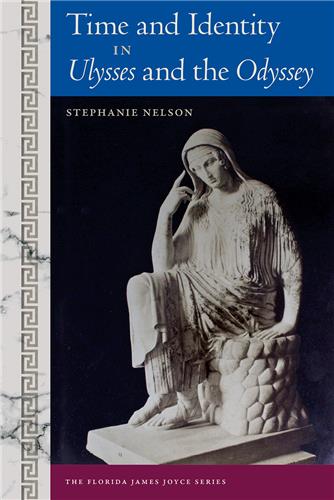The Ecology of Finnegans Wake
Alison Lacivita
Foreword by Sebastian D. G. Knowles, Series EditorPaper: $28.00
- Series: The Florida James Joyce Series
“Recommend[ed] [for] scholarly readers beyond the Joyceans it is likely to attract; it is not only among the strongest monographs of Joyce scholarship in recent memory, but it is also one of the most innovative works of contemporary ecocriticism.”—ISLE: Interdisciplinary Studies in Literature and Environment
“The most striking features of Lacitiva’s work are the sheer newness of her arguments, the quality of the secondary material that she uses and the extensive primary text support for her arguments. . . . The reader, if ever doubtful, is assured of a new way of reading the Wake.”—James Joyce Broadsheet
“It is among the most interesting and well-informed books on Joyce published in the past decade.”—English Literature in Transition, 1880?1920
"A remarkable work in three areas: the field of ecocriticism, to which it contributes a huge amount of historical and bibliographic information; the practice of genetic criticism in Joyce studies; and the exploration of ecological interests, themes, allusions, arguments, and manifestations in Finnegans Wake."—Margot Norris, editor of the Norton Critical Edition of Joyce's Dubliners
"A terrifically useful study. Makes the text shimmer with new possibilities by alerting the reader to Joyce's interest in hydro-engineering, green belts, meteorology, polar exploration, and much more."—Cheryl Temple Herr, author of Critical Regionalism and Cultural Studies
"Demonstrates the promise of an 'urban ecological criticism' that integrates the largely pastoral emphases of ecocritical inquiry into modernist studies."—Thomas Jackson Rice, author of Cannibal Joyce
In this book—one of the first ecocritical explorations of both Irish literature and modernism—Alison Lacivita defies the popular view of James Joyce as a thoroughly urban writer by bringing to light his consistent engagement with nature. Using genetic criticism to investigate Joyce's source texts, notebooks, and proofs, Lacivita shows how Joyce developed ecological themes in Finnegans Wake over successive drafts.
Making apparent a love of growing things and a lively connection with the natural world across his texts, Lacivita's approach reveals Joyce's keen attention to the Irish landscape, meteorology, urban planning, Dublin's ecology, the exploitation of nature, and fertility and reproduction. Lacivita unearths a vital quality of Joyce's work that has largely gone undetected, decisively aligning ecocriticism with both modernism and Irish studies.
Alison Lacivita earned her Ph.D. from Trinity College Dublin.
- Sample Chapter(s):
- Excerpt
- Table of Contents
Recommend[ed] [for] scholarly readers beyond the Joyceans it is likely to attract; it is not only among the strongest monographs of Joyce scholarship in recent memory, but it is also one of the most innovative works of contemporary ecocriticism.
--ISLE: Interdisciplinary Studies in Literature and Environment
The most striking features of Lacitiva's work are the sheer newness of her arguments, the quality of the secondary material that she uses and the extensive primary text support for her arguments. . . . The reader, if ever doubtful, is assured of a new way of reading the Wake.
--James Joyce Broadsheet
It is among the most interesting and well-informed books on Joyce published in the past decade.
--English Literature in Transition, 1880-1920












